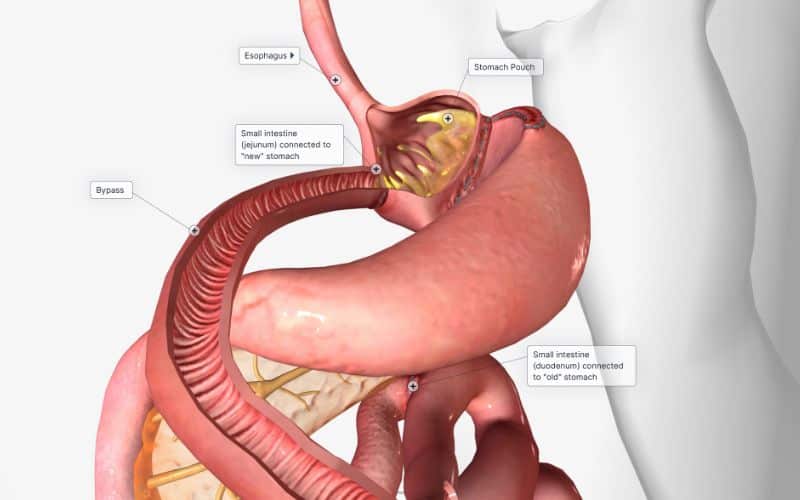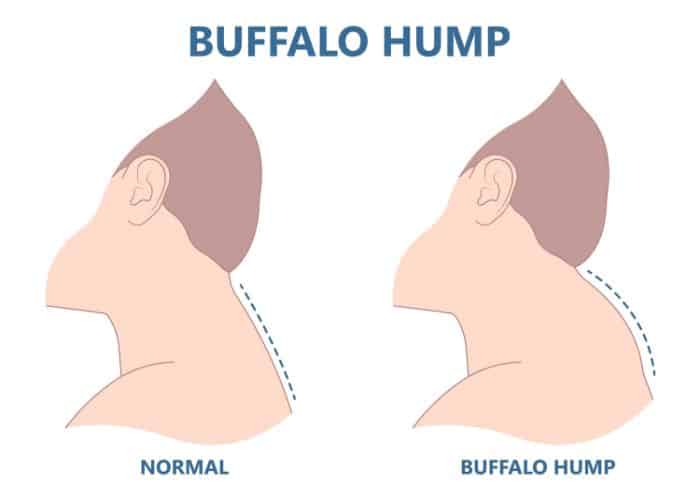Yes, I understand. Kaiser Permanente is a healthcare organization that provides a range of medical services, including weight loss surgery. If you're considering weight loss surgery as an option, you may be wondering if Kaiser Permanente offers this service. The answer is yes, Kaiser Permanente does offer weight loss surgery.
Weight loss surgery, also known as bariatric surgery, is a surgical procedure that helps people lose weight by altering their digestive system. It is usually recommended for people who are severely overweight and have not been able to lose weight through diet and exercise. Kaiser Permanente offers several types of weight loss surgery, including gastric bypass, sleeve gastrectomy, and adjustable gastric banding. These surgeries can help patients lose a significant amount of weight and improve their overall health.
Contents
Kaiser Permanente Overview

Kaiser Permanente is a leading healthcare provider that offers a range of services to its members, including weight loss surgery. The organization is committed to providing high-quality care to its members and has a team of experienced healthcare professionals who specialize in bariatric surgery.
Kaiser Permanente has a comprehensive weight management program that includes weight loss surgery as an option for eligible patients. The program is designed to help patients achieve and maintain a healthy weight, improve their overall health, and reduce the risk of obesity-related diseases.
The weight management program at Kaiser Permanente offers a range of surgical options, including gastric sleeve surgery, laparoscopic gastric banding, and Roux-En-Y gastric bypass. Each procedure has its own benefits and risks, and the healthcare team will work with patients to determine the best option for their individual needs.
In addition to weight loss surgery, Kaiser Permanente offers a range of support services to help patients achieve their weight loss goals. These services include nutrition counseling, exercise programs, and behavioral health services. The organization also has a team of registered dietitians who can provide personalized nutrition plans to help patients achieve their weight loss goals.
Overall, Kaiser Permanente is committed to providing high-quality care to its members and has a range of services available to help patients achieve and maintain a healthy weight. If you are interested in weight loss surgery, speak with your healthcare provider to determine if it is the right option for you.
Weight Loss Surgery: An Overview
Kaiser Permanente offers weight loss surgery to eligible individuals who are struggling to lose weight through diet and exercise alone. Weight loss surgery, also known as bariatric surgery, is a surgical procedure that helps people achieve significant weight loss by reducing the size of the stomach or rerouting the small intestine to a small stomach pouch.
Bariatric surgery is typically recommended for individuals who have a body mass index (BMI) of 40 or higher, or a BMI of 35 or higher with at least one obesity-related health condition, such as type 2 diabetes, high blood pressure, or sleep apnea. It is important to note that weight loss surgery is not a quick fix for weight loss and should not be considered as a first-line treatment option.
There are several types of weight loss surgeries available at Kaiser Permanente, including gastric bypass, gastric sleeve, and laparoscopic adjustable gastric banding. Each type of surgery has its own benefits and risks, and the most appropriate option will depend on the individual's specific needs and health status.
It is important to note that weight loss surgery is not a one-time solution and requires ongoing commitment to lifestyle changes, such as healthy eating habits and regular exercise. Kaiser Permanente provides comprehensive support for individuals who undergo weight loss surgery, including pre-operative education, post-operative follow-up care, and ongoing support from a team of healthcare professionals.
Overall, weight loss surgery can be a life-changing option for individuals who are struggling with obesity and related health conditions. If you are interested in weight loss surgery, it is important to speak with your healthcare provider to determine if it is the right option for you.
Kaiser's Weight Loss Surgery Options
If you're considering weight loss surgery, Kaiser Permanente offers several options to help you achieve your goals. Here are the three most common types of weight loss surgery Kaiser offers:
Gastric Bypass Surgery

Gastric bypass surgery, also known as Roux-en-Y gastric bypass, is a type of weight loss surgery that involves creating a small stomach pouch and rerouting the small intestine to this new pouch. This limits the amount of food you can eat and reduces the number of calories and nutrients your body absorbs.
Kaiser Permanente offers both open and laparoscopic gastric bypass surgery. Open surgery is done through a large incision in the belly, while laparoscopic surgery is done through several small incisions. Your doctor will recommend the best option for you based on your medical history and current health status.
Laparoscopic Adjustable Gastric Banding
Laparoscopic adjustable gastric banding, also known as lap band surgery, involves placing a silicone band around the upper part of the stomach to create a small pouch. This limits the amount of food you can eat and makes you feel full sooner.
Kaiser Permanente offers laparoscopic adjustable gastric banding as a weight loss surgery option. This surgery is less invasive than other weight loss surgeries and can be adjusted as needed to help you achieve your weight loss goals.
Sleeve Gastrectomy
Sleeve gastrectomy, also known as gastric sleeve surgery, involves removing a large portion of the stomach to create a small, sleeve-shaped stomach. This limits the amount of food you can eat and reduces the production of hunger hormones, making you feel full sooner.
Kaiser Permanente offers sleeve gastrectomy as a weight loss surgery option. This surgery is typically done laparoscopically, which means it is less invasive than open surgery and has a shorter recovery time.
Overall, Kaiser Permanente offers a variety of weight loss surgery options to help you achieve your weight loss goals. Your doctor will work with you to determine the best option based on your medical history, current health status, and weight loss goals.
Eligibility for Weight Loss Surgery at Kaiser
Weight loss surgery is a serious medical procedure that is only recommended for people who are very overweight and have not been able to lose weight with diet and exercise. Kaiser Permanente offers weight loss surgery to eligible members who meet certain criteria.
To be considered for weight loss surgery at Kaiser, you must meet the following eligibility requirements:
- You must have a body mass index (BMI) of 40 or higher, or a BMI of 35 or higher with at least one obesity-related health problem, such as type 2 diabetes, high blood pressure, or sleep apnea.
- You must have been unable to achieve and maintain weight loss through a medically supervised weight loss program for at least six months.
- You must be willing to commit to a lifelong change in diet and exercise habits, as well as regular follow-up appointments with your care team.
If you meet these eligibility requirements, you will need to undergo a comprehensive evaluation to determine if weight loss surgery is right for you. This evaluation will include a physical exam, blood tests, imaging tests, and consultations with a variety of healthcare professionals, including a surgeon, a dietitian, and a mental health professional.
It is important to note that not everyone who meets the eligibility requirements for weight loss surgery will be approved for the procedure. Your care team will carefully evaluate your individual situation to determine if the benefits of weight loss surgery outweigh the risks and potential complications.
If you are approved for weight loss surgery at Kaiser, you will receive comprehensive support before, during, and after your procedure to help you achieve and maintain your weight loss goals. This support may include nutritional counseling, exercise advice, and ongoing medical monitoring.
Procedure and Recovery

Kaiser Permanente offers weight loss surgery for eligible patients who have not been able to lose weight through diet and exercise alone. The most common weight loss surgery performed at Kaiser Permanente is the gastric sleeve surgery, also known as sleeve gastrectomy. This surgery involves removing a portion of the stomach to reduce its size and limit the amount of food it can hold.
The surgery is usually performed laparoscopically, which means it is minimally invasive and requires only small incisions in the abdomen. Patients are typically under general anesthesia during the procedure and may stay in the hospital for one or more days afterwards, depending on the type of surgery and their individual needs.
After surgery, patients will need to follow a specific diet and exercise plan to aid in their recovery and weight loss goals. The first few weeks after surgery, patients will be on a liquid diet and gradually transition to soft foods and then solid foods. It is important to follow the diet plan provided by their healthcare provider to ensure proper healing and weight loss.
Most patients are able to return to normal activities within 2 to 4 weeks after surgery. However, it is important to avoid heavy lifting and strenuous exercise for several weeks after surgery to allow the body to heal properly. Patients will also need to attend regular follow-up appointments with their healthcare provider to monitor their progress and make any necessary adjustments to their diet and exercise plan.
Overall, weight loss surgery at Kaiser Permanente can be an effective tool for eligible patients to achieve their weight loss goals and improve their overall health. It is important to discuss the risks and benefits of weight loss surgery with a healthcare provider to determine if it is the right option for each individual patient.
Cost and Insurance Coverage
Weight loss surgery can be costly, and insurance coverage for it varies. If you are interested in weight loss surgery through Kaiser Permanente, it is important to understand the cost and insurance coverage options.
Kaiser Permanente does cover weight loss surgery, but patients must meet certain requirements. To qualify for coverage, patients must have a body mass index (BMI) of 40 or greater, or a BMI of 35 or greater with at least one obesity-related health condition. Patients must also have attempted other weight loss methods, such as diet and exercise, without success.
The cost of weight loss surgery through Kaiser Permanente will depend on your specific plan and the type of surgery you choose. Kaiser Permanente offers several types of weight loss surgery, including gastric sleeve surgery and adjustable gastric banding. The cost of these procedures can range from $10,000 to $25,000.
If you are considering weight loss surgery through Kaiser Permanente, it is important to check your insurance coverage. Not all insurance plans cover weight loss surgery, and coverage can vary widely. To find out if your plan covers weight loss surgery, you should contact your insurance provider directly.
In addition to insurance coverage, Kaiser Permanente offers financing options for weight loss surgery. These options can help make the cost of surgery more manageable. It is important to talk to your doctor and insurance provider to fully understand the cost and insurance coverage options for weight loss surgery through Kaiser Permanente.
Post-Surgery Support and Maintenance
Kaiser Permanente offers comprehensive post-surgery support and maintenance programs to help patients achieve long-term success with weight loss surgery. These programs are designed to help patients make the necessary lifestyle changes and maintain a healthy weight after surgery.
Support Groups
Support groups are an important part of the post-surgery support program at Kaiser Permanente. These groups provide patients with an opportunity to connect with others who have undergone weight loss surgery and share their experiences. Support groups can be a valuable source of emotional support and motivation for patients who are struggling to adjust to their new lifestyle.
Nutritional Counseling
Nutritional counseling is an important component of the post-surgery support program at Kaiser Permanente. Patients receive individualized counseling from registered dietitians to help them develop a healthy eating plan that meets their unique needs and goals. Nutritional counseling can help patients make the necessary dietary changes to achieve and maintain a healthy weight after surgery.
Exercise Programs
Exercise is an important part of the post-surgery support program at Kaiser Permanente. Patients receive individualized exercise plans that are tailored to their fitness level and goals. Exercise programs can help patients build muscle, improve their cardiovascular health, and maintain a healthy weight.
Follow-Up Care
Follow-up care is an essential component of the post-surgery support program at Kaiser Permanente. Patients receive regular check-ups with their healthcare provider to monitor their progress and ensure that they are on track to achieve their weight loss goals. Follow-up care can help patients identify and address any issues that may be hindering their success.
Overall, Kaiser Permanente provides a comprehensive post-surgery support and maintenance program to help patients achieve long-term success with weight loss surgery. With the right support and guidance, patients can make the necessary lifestyle changes to achieve and maintain a healthy weight for life.
Benefits and Risks of Weight Loss Surgery

Weight loss surgery, also known as bariatric surgery, is a surgical procedure that can help people who are severely overweight lose weight and improve their overall health. While weight loss surgery can be an effective tool for weight loss, it is important to understand the potential benefits and risks before deciding to undergo the procedure.
Benefits of Weight Loss Surgery
The benefits of weight loss surgery can be significant, including:
- Significant weight loss: People who undergo weight loss surgery typically lose a significant amount of weight in the first year following the procedure.
- Improved overall health: Weight loss surgery can improve or even resolve many health conditions associated with obesity, such as type 2 diabetes, high blood pressure, and sleep apnea.
- Increased mobility: Losing weight can make it easier to move around and engage in physical activity, which can improve overall quality of life.
- Improved mental health: Many people who undergo weight loss surgery report improved self-esteem and confidence, as well as a reduction in symptoms of depression and anxiety.
Risks of Weight Loss Surgery
While weight loss surgery can have significant benefits, it is important to understand the potential risks as well. Some of the potential risks of weight loss surgery include:
- Infection: As with any surgical procedure, there is a risk of infection following weight loss surgery.
- Bleeding: There is also a risk of bleeding during or after the procedure.
- Nutritional deficiencies: Weight loss surgery can make it difficult to absorb certain nutrients, which can lead to deficiencies if not carefully monitored.
- Gallstones: Rapid weight loss following weight loss surgery can increase the risk of developing gallstones.
- Complications: In rare cases, weight loss surgery can lead to complications such as blood clots, bowel obstruction, or hernias.
It is important to discuss the potential benefits and risks of weight loss surgery with your doctor to determine if it is the right choice for you.
Conclusion
In conclusion, Kaiser Permanente offers weight loss surgery as a treatment option for individuals who are very overweight and have not been able to lose weight with diet and exercise. The types of weight loss surgery offered at Kaiser Permanente include gastric sleeve and gastric bypass surgeries, both of which are effective in helping individuals lose weight.
It is important to note that weight loss surgery is not a one-size-fits-all solution and should only be considered after careful evaluation and discussion with a healthcare provider. Kaiser Permanente provides resources for patients to learn about weight loss surgery, including support groups and educational materials.
While weight loss surgery can be an effective tool for weight loss, it is important to remember that it is not a quick fix and requires a lifelong commitment to healthy lifestyle changes. Patients who undergo weight loss surgery at Kaiser Permanente are provided with post-operative care and support to help them achieve their weight loss goals and maintain their weight loss over time.
Overall, Kaiser Permanente is committed to providing comprehensive care to its patients, including weight loss surgery as a treatment option for individuals struggling with obesity. If you are interested in learning more about weight loss surgery at Kaiser Permanente, speak with your healthcare provider to determine if it is the right option for you.







